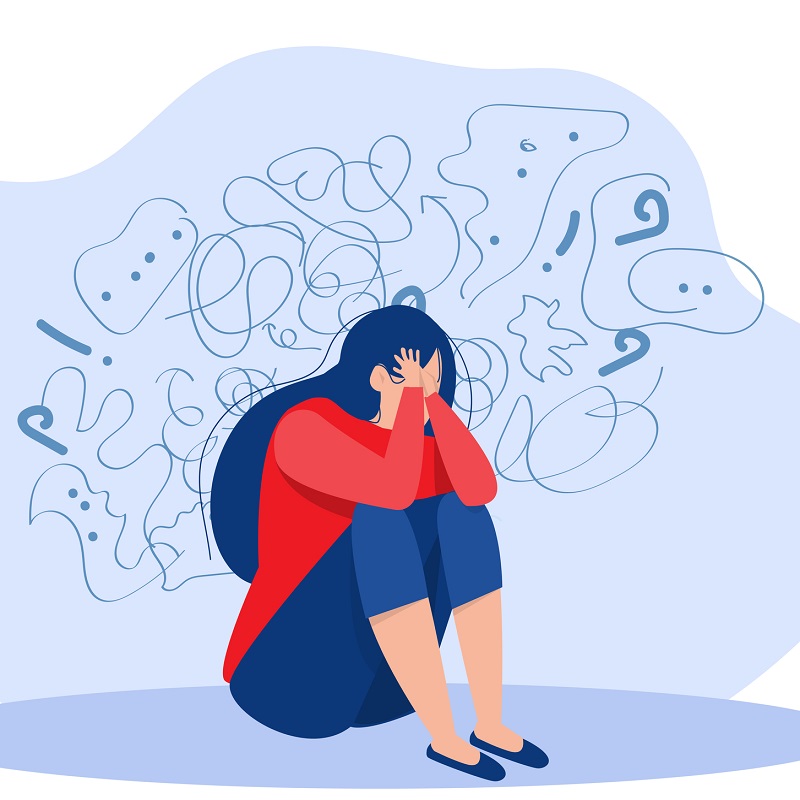Anxiety is a natural human response when we believe we’re under threat. It can manifest itself in a variety of ways in our daily lives – but what is anxiety?
Anxiety symptoms
There are a number of symptoms associated with anxiety, and these can be physical and psychological. Psychological symptoms are those which have an impact on the way that you think and feel, and they could make you worried about social contact, going to work, or being among other people in general. On the other hand, physical symptoms could be anything from dizziness and a faster heartbeat to nausea and headaches, and it may not always be obvious what is causing you to feel anxious.
Psychological and physical signs of anxiety also include:
- Restlessness
- Irritability
- Finding it difficult to concentrate
- Tiredness
- Excessive sweating
- Shortness of breath
- Muscle tension
- Insomnia
Anxiety attack symptoms
Anxiety attacks feel like a sudden rush of anxiety and can trigger a number of different symptoms. These include:
- Racing heartbeat
- Feeling faint
- Feeling a loss of control
- Sweating or shaking
- Shortness of breath or breathing very quickly
- Tingling in your fingers or lips
- Nausea
While these attacks can feel scary, they usually pass within 5 to 30 minutes and shouldn’t harm you. In fact, if you or someone you care for is having a heart attack, encourage slow, deep breathing and try to stay calm by remembering that the symptoms are being caused by anxiety and nothing more dangerous.
Causes
Anxiety can be caused by a number of factors, though as everyone experiences it differently it can be tricky to decipher what the exact cause is for each individual. For example, if you or someone you care for has anxiety it could be down to things that are playing on your mind, such as money worries, feeling lonely, or the fact that you’re not getting enough sleep. In addition to this, anxiety can also stem from stress or trauma experienced in the past or during childhood.
Physical and mental health conditions could also cause anxiety, such as living with chronic pain or depression, so this is something else to consider, especially when thinking about those that you care for. Other possible triggers include caffeine, alcohol, and some medications, so it can be a good idea to note down anxious periods and think about whether these could be linked to certain drinks or medicines.
Treatments for anxiety
There are several different treatments available that can help ease the symptoms of anxiety. These include:
Psychological therapy – An example of this is cognitive behavioural therapy (CBT) which helps you to break down problems that might appear to be unmanageable. Moreover, this therapy can identify and work to solve specific problems while setting achievable goals.
Medication – You can discuss medication with your GP if you think this is the best option for you. One possible medication is selective serotonin reuptake inhibitors (SSRIs) which are a type of antidepressant.
As a Newcross employee, our myHealthPlan package enables you to access specialist mental health support. Significantly, this includes unlimited 24/7 telephone counselling and support, face-to-face counselling sessions, plus online counselling. You can access this should you have feelings of anxiety and want to talk to someone about this.
If you or someone you know is suffering with anxiety, Anxiety Support are there to help. For more insights, take a look at our healthcare news.











